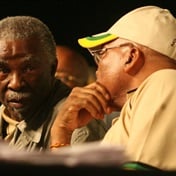
Nigerian President Muhammadu Buhari declared during his recent visit to South Africa that xenophobic attacks in the country were a shame on Africa.
Other African leaders have been similarly critical of the South African government’s inability to prevent attacks on immigrants and refugees.
The recent outbreak of violence was the latest instalment in criminality that dates back to the beginning of the country’s independence in 1994.
While no one can dispute the tragedy such violence has visited on immigrants and refugees, African observers, particularly political leaders, fail to understand three facts that define the problem:
- Nearly all violence occurs in predominantly black townships and informal settlements;
- The target of violence is not only African immigrants; and
- Foreign nationals in most parts of the country are not subject to targeted violence.
Immigrants and refugees are not the only victims of violence and those who legitimately condemn these acts rarely think about the lives of the majority of black citizens of the country.
Black and poor South African communities have been terrorised by criminal gangs, often by the same gangs that loot and maim immigrants.
Stats SA shows that 57 people are killed in the country on an average day and the majority of these victims are South African citizens.
It is the case that for every immigrant who is murdered in an area, many citizens in that area face the same fate.
Unfortunately, Africans outside the country rarely take note of this tragic carnage and appear to value the lives of refugees and immigrants above those of black South African victims.
It is vital for all those who care about African lives to understand the complexity of the calamity to contribute to a comprehensive solution.
Criminality is widespread in parts of South Africa and the best way to define the problem is not by casting sensationalist labels such as xenophobia but to critically assess the genesis, nature and scope of the problem.
There is no dispute that the context that feeds this criminality is the enduring legacy of apartheid injustice and the hopelessness that prevails in the country.
Poverty and high unemployment are endemic, despite the huge effort that government has made since 1994 to ameliorate these conditions.
Examining the geography and political economy of violence demonstrates that it is the poor South Africans and immigrants in townships and informal settlements who are preyed on by criminals.
What is astonishing is why African leaders, non-governmental organisations and media heckle only when immigrants and refugees are victimised.
A thoughtful person might ask why some immigrants and refugees choose to settle in “forbidden” areas.
Before responding to this question we need to state that South Africa under white minority rule did not accept African immigrants and refugees.
It is since liberation that a large number of Africans have migrated to South Africa.
Since a proportion of the Africans who voyaged to South Africa were poor, they settled in townships and sought their livelihoods there.
Some poor immigrants and refugees who settle in predominantly black townships engage in business and thus compete with their South African counterparts.
A small group of these newcomers have an advantage over the local retailers since they are part of larger networks of people located in cities and towns.
Such links allow them to have access to wholesale prices which are not available to locals. Consequently, some outcompete their local neighbours by offering customers cheaper prices.
Such competition generates resentment which sometimes turns violent, but it is most often local criminals who see an opportunity in these circumstances.
Sensing the social isolation of immigrant traders, criminals target them at the slightest pretext to loot.
Once the criminals attack, some of the poor and unemployed join in the mayhem.
In a nutshell, the violence arises because of the desperate struggles over livelihoods among the indigent.
What is not astonishing is that immigrants fleeing violence find refuge within the larger black community.
There are two major sectors that have been derelict in their duties and that are responsible for the crisis.
First, the South African government has made huge investments in housing, education, social grants and medical care to dent the deep humanitarian deficits of apartheid.
But it could have accomplished more if it had not been for the lost decade of former president Jacob Zuma’s corrupt presidency and the government’s misguided neoliberal economic strategy.
Despite these domestic problems, the government welcomed millions of Africans who fled their own countries, as a nod to the continent’s support for liberation.
Second, the political elite in much of Africa, such as Nigeria, mismanaged their economies and terrorised their people. Such political economic conditions forced many Africans to seek sanctuary in South Africa.
Had these elites productively used their resources, developed the population’s talents and treated their people humanely, they would not have sought asylum in South Africa.
Such leaders lack the moral authority to castigate South Africa.
The shame is theirs for failing to translate the struggles for independence into dignified livelihood realities.
Samatar is professor of geography at the University of Minnesota, US, and research Fellow at the University of Pretoria
 | ||||||||||||||||||||||||||
Get in touchCity Press | ||||||||||||||||||||||||||
| ||||||||||||||||||||||||||
| Rise above the clutter | Choose your news | City Press in your inbox | ||||||||||||||||||||||||||
| City Press is an agenda-setting South African news brand that publishes across platforms. Its flagship print edition is distributed on a Sunday. |




 Publications
Publications
 Partners
Partners









